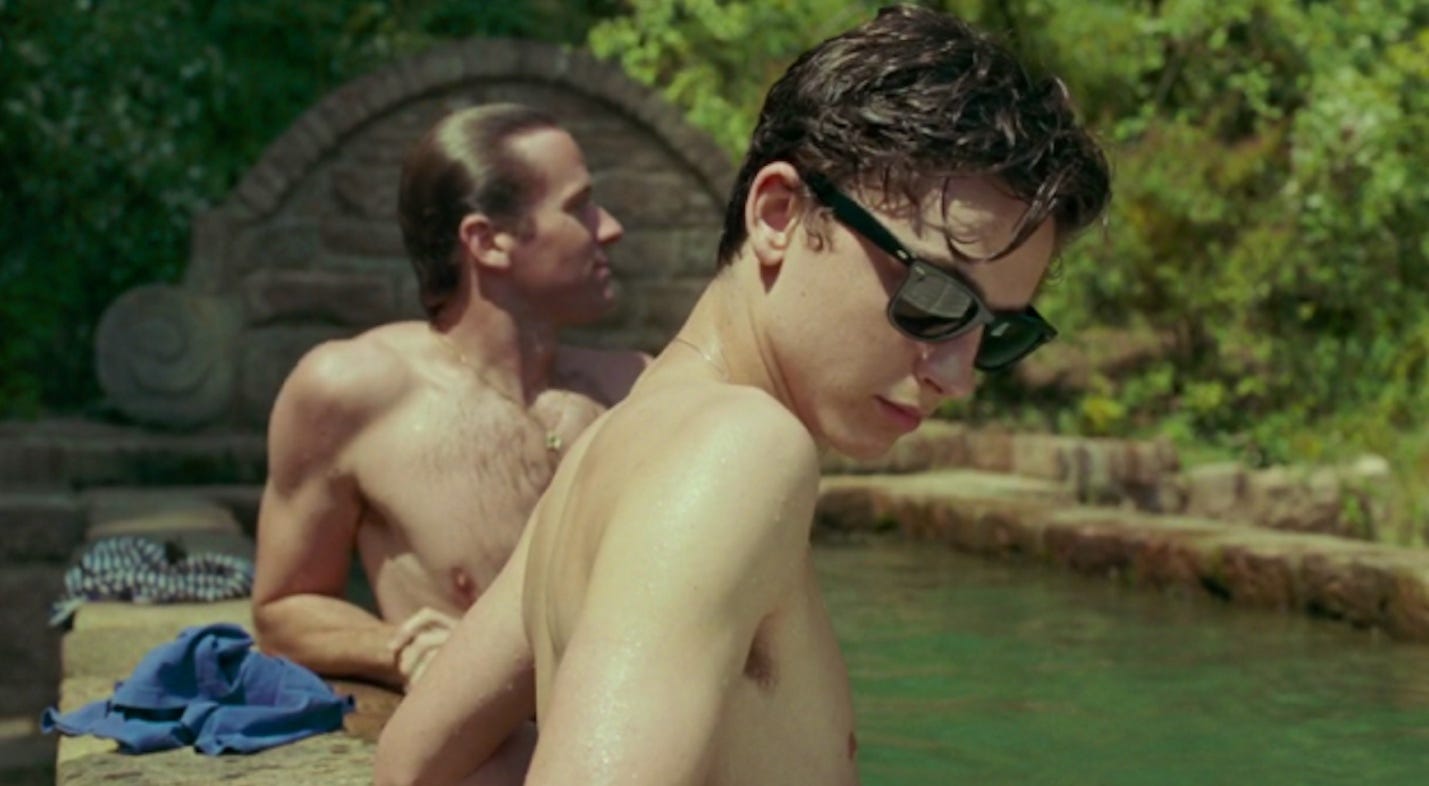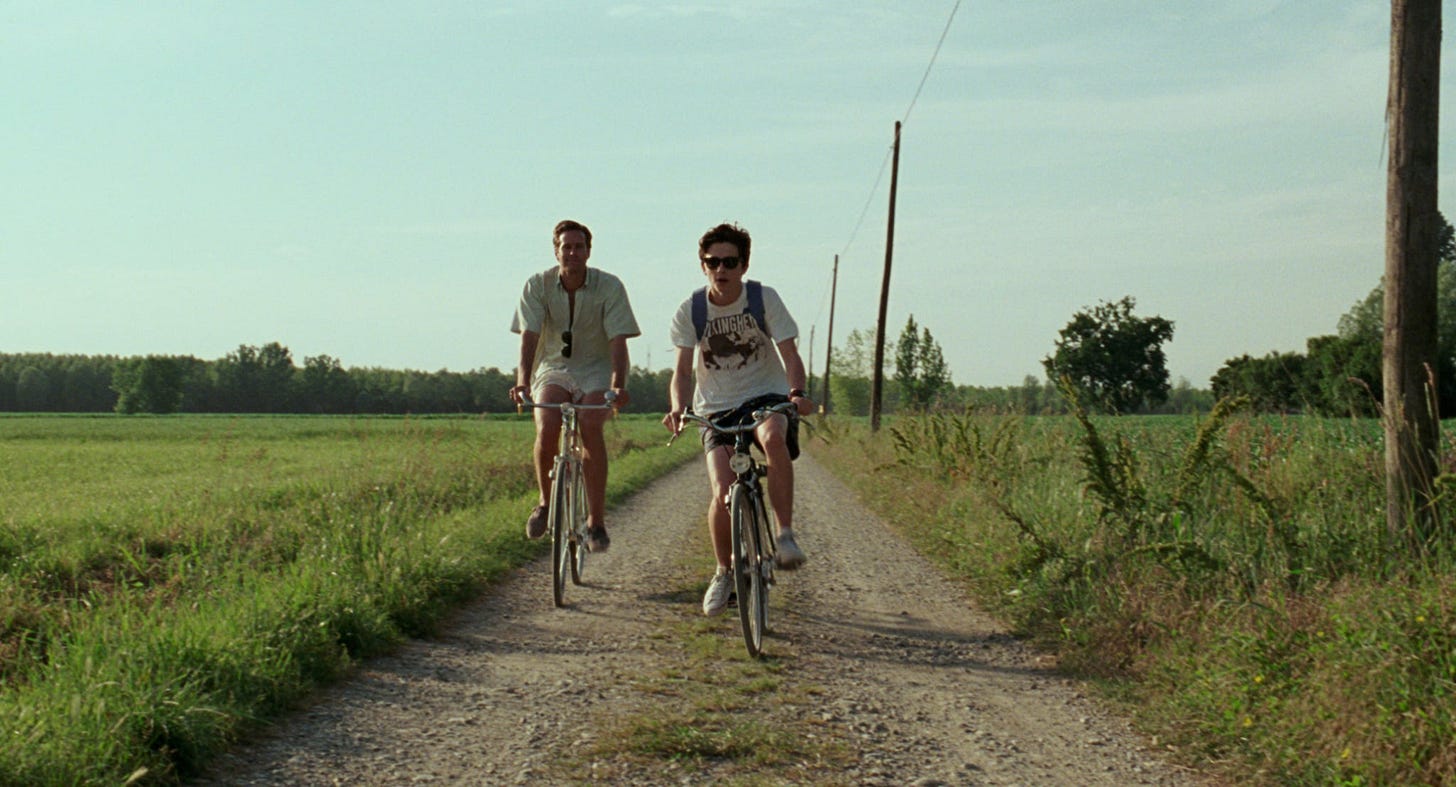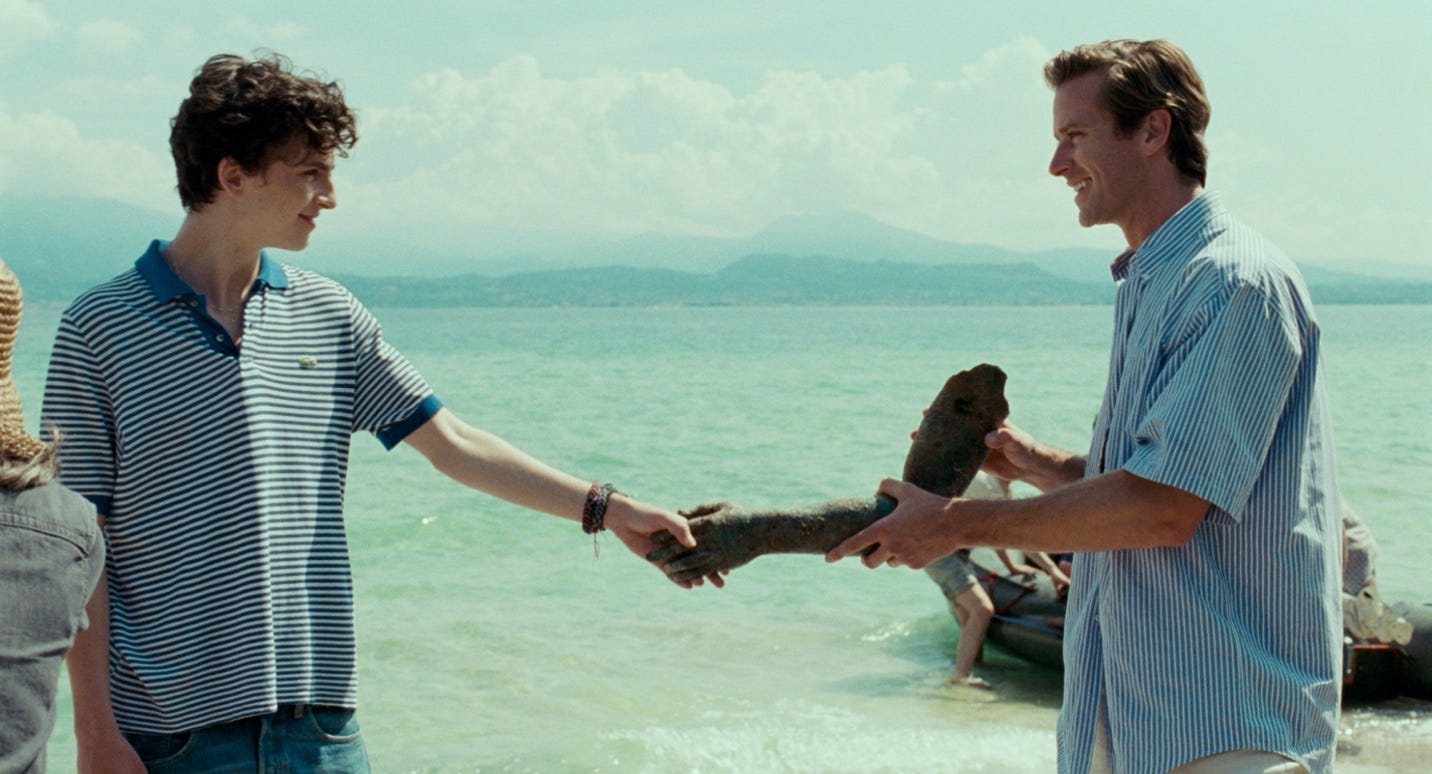Is “Latinx” a thing? Should kink be allowed at Pride? And what’s queerbaiting? The start of June means the arrival of Pride Month, and with Pride Month comes heightened, annoying discourse about every facet of our existence. Much of this includes reevaluating the media we used to hold near and dear, seeing how well it holds up and ruining it for others when it doesn’t. In the last year, we’ve dog-piled Ryan Murphy and seen Ellen DeGeneres get dethroned as America’s favorite lesbian — both of which were a long time coming. Today’s topic of discussion, however, is one that fascinates me to no end: the dwindling popularity of Call Me By Your Name.
Based on André Aciman’s acclaimed novel of the same title, Call Me By Your Name tells the story of Elio Perlman, a 17-year-old French-Italian-American spending the summer of ’83 with his parents in the Italian countryside. When a handsome 24-year-old grad student named Oliver stays with the family to help Elio’s academic father with paperwork, an infatuated Elio finds himself rediscovering his sexuality. Written and directed by James Ivory and Luca Guadagnino respectively, the film received rave reviews upon its 2017 release, quickly becoming a modern classic.
While many will call it a passionate love story and tender coming-of-age tale, Call Me By Your Name is, first and foremost, a story of desire. Following the perspective of a young man experiencing these emotions for the first time in his life made the movie immensely popular among young audiences upon release. But more recently, the romanticizing of Elio’s innocence and the wide age gap between him and Oliver have been called into question.
While I intend this to be a reflection of how quickly the movie has aged in just three and a half years rather than a defense or rebuttal of its ethics, I feel it’s imperative to give context here. Timothée Chalamet, who plays Elio, was 22 years old when the film was shot, and Armie Hammer (Oliver), was 33. The relationship between the two men in the film is consensual, and initiated by Elio. The dubious ethics of the situation are acknowledged throughout, with Oliver expressing hesitance over the fact that Elio is seven years his junior. Defenders of the film often cite the fact that it takes place in Italy, where the younger character meets the age of consent, and during the ‘80s, when age gaps of this kind were more normalized. Critics will argue that this doesn’t make it any less inappropriate.
Because the movie is about Elio’s desire and self-discovery more than it is about the romance between him and Oliver, the story centers on him more than his co-lead. This is made evident not only by the Chalamet’s extended screentime, but also through cinematographer Sayombhu Mokdeeprom’s framing which often puts Elio in the foreground to emphasize his inner sensitivity. It’s a film that seems aware of its skewed ethics and chooses to explore this grey area by making us live vicariously through the character in order to explore his desires.
I had yet to fall in love and experience that agonizing feeling of heartbreak when I first watched Call Me By Your Name. Although I always admired the film’s technical aspects — lush, 35mm cinematography and impressive work from the two (incredibly attractive) leading men — it’s hard to deny that its stark emotional effect was lost on me at a time when I lacked that wisdom. Much has changed since then and re-watching the film this week had me identifying with Elio and thanking God I hadn’t seen it back when I was experiencing my own sappy melodrama during the middle of quarantine. This is all to say that I’m sure anyone who’s ever been in love at around his age will identify with the character’s rabid infatuation to some degree.
But while relatability did account for many young peoples’ obsession with the film in 2017, it’s hard to deny that the charisma and sex appeal of its stars did too. Chalamet especially has become something of a heartthrob among female demographics of all ages, leading many cynics to raise the question of who makes up the film’s audience and why.
And then of course, there’s the Armie Hammer thing.
Back in January, multiple women accused the actor of cannibalistic fetishism, emotional abuse, non-consensual BDSM and in one case, even rape. The allegations were made worse when an anonymous Instagram account leaked screenshots of incriminating text messages from Hammer, in which he described such violent, sexual fantasies. He has since been dropped by his acting agency and left several projects despite denying the allegations. Anyone would be forgiven for no longer being able to enjoy a schmaltzy romance film with him as the lead — especially one that already had such questionable implications.
Then there is the historic pattern of social conservatives stigmatizing LGBTQ+ people as sexual predators. With right-wing figurehead James Woods making Call Me By Your Name a part of the culture war in 2017, there’s a conversation to be had about respectability politics and to what extent queer art should be tasked with dismantling harmful stereotypes that shouldn’t exist in the first place. Of course, the recurring trend of LGBTQ+ coming-of-age romances with large age gaps in popular media does nor help matters (2013’s Blue Is The Warmest Color comes to mind here). Still, it should be acknowledged that far wider age gaps have existed in straight “romances” like 2009’s bewildering An Education, facing little to no criticism. And regardless of the actors’ whereabouts, there’s something to be celebrated about the involvement of so many queer artists behind the scenes, and how a gay romance written and directed by out gay men managed to achieve such widespread acclaim and success.
Like coming to terms with one’s identity or one’s feelings towards someone else, the legacy of Call Me By Your Name is a complicated one. To anyone who has yet to see the film, I recommend checking it out and forming your own thoughts from there. Who knows? It might end up surprising you.
Until next week, arrivederci. ■








Was wondering what happened to all the CMBYM love, everyone went gaga for it in 2017. I just assumed the sequel was scrapped because of the Armie disgust, wasn’t aware there was more to it. The age discrepancy doesn’t feel too inappropriate in the film’s context, then again haven’t seen is since it’s release. Nice job clarifying the problematic points that have caused so many to rethink the film’s stature.